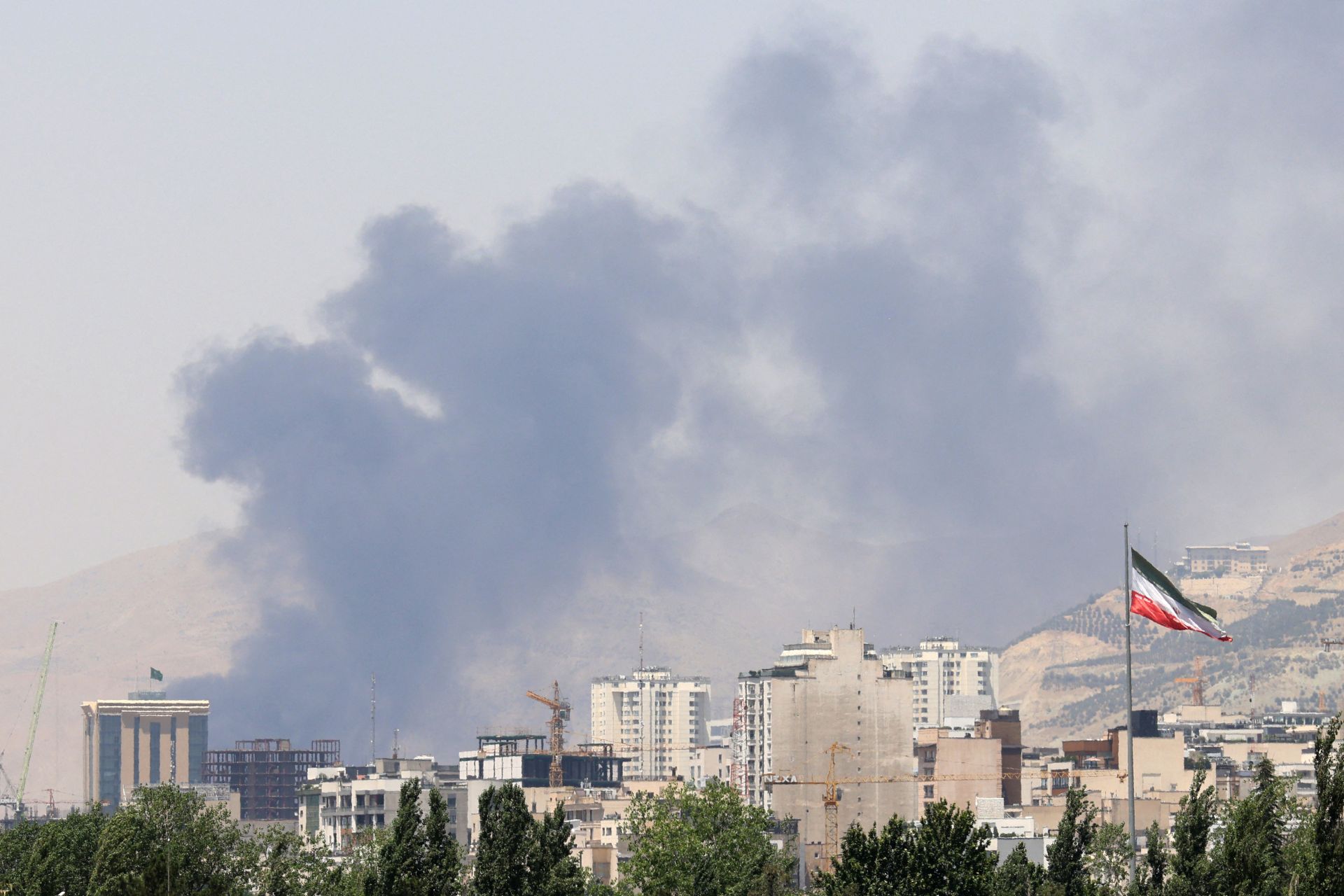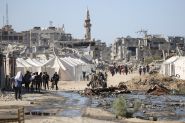- Home
- Middle East
- Israel-Iran Conflict: Latest Developments

Smoke billows for the second day from the Shahran oil depot, northwest of Tehran, on June 16, 2025. Iran unleashed a barrage of missile strikes on Israeli cities early on June 16, after Israel struck military targets deep inside Iran, with both sides threatening further devastation. ©Atta Kenare / AFP
Israel and Iran traded deadly fire for a fourth consecutive day on Monday in their most intense confrontation in history, fueling fears of a drawn-out conflict that could engulf the Middle East.
The longtime foes have fought a prolonged shadow war through proxies and covert operations, with Israel battling several Iran-backed groups in the region, including Hamas in the Gaza Strip, since October 2023.
Here are the latest developments:
Several employees of Iranian state media were reportedly killed in an Israeli airstrike, according to Iranian news agencies and event monitoring sources. The attack targeted the live broadcast studio of the "Shabakat Khabar" news channel, interrupting its transmission, Iran’s official news agency IRNA reported.
Mounting Casualties
In a major campaign launched early Friday, Israeli fighter jets and drones have struck nuclear and military sites in Iran, also hitting residential areas and fuel depots.
Iran's health ministry says at least 224 people have been killed and more than 1,200 wounded.
Tehran has responded with barrages of missiles and drones that hit Israeli cities and towns, killing at least 24 people and injuring 592 others, according to the prime minister's office.
Israel has also killed many top military commanders and atomic scientists in Iran, part of the offensive that officials say seeks to thwart nuclear and missile threats from the Islamic republic.
Military Targets
The Israeli military said that after a wave of strikes on Monday, its forces had destroyed one-third of Iran's surface-to-surface missile launchers.
Israel's military urged residents of a northern district of Tehran to evacuate "immediately", saying it intended to carry out air strikes there.
"In the coming hours, the (Israeli military) will operate in the area, as it has in recent days throughout Tehran, to strike military infrastructure of the Iranian regime," the military said in a post on X in Persian, indicating a part of Tehran's District 3 on a map and telling citizens to "evacuate the marked area" for safety.
According to military spokesman Effie Defrin, "we have now achieved full air superiority over Tehran."
It followed a wave of intense air raids across Iran, from the western border with Iraq to the capital Tehran and as far east as Mashhad, where the airport was hit.
In Tehran early Monday, Israel said it hit command centers belonging to the Quds Force, the foreign operations arm of the Islamic Revolutionary Guard Corps.
Reza Sayyad, spokesman for the Iranian armed forces, said their targets in Israel included "sensitive and important" security sites as well as "the residences of military commanders and scientists."
Escalating Threats
Sayyad, in a televised address, vowed a "devastating response" to the Israeli attacks, while the Revolutionary Guards, in a statement, warned they would hit more "vital targets" in Israel "until its complete destruction."
Residential areas in both countries have suffered, with Israel accusing Iran of deliberately targeting civilians.
After deadly overnight missile fire, Defense Minister Israel Katz warned that "the residents of Tehran will pay the price, and soon."
Diplomacy
The conflict has rapidly escalated despite calls from world leaders to halt the attacks.
China urged Iran and Israel to "immediately" take steps to reduce tensions and "prevent the region from falling into greater turmoil."
Turkish President Recep Tayyip Erdogan told his Iranian counterpart in a phone call on Monday that Ankara is ready to play a "facilitating role" to end the conflict.
US President Donald Trump has urged the foes to "make a deal" but told reporters Sunday that "sometimes they have to fight it out" first.
Nuclear Sites
Netanyahu has said the Israeli offensive aims to thwart an "existential" nuclear and missile threat from Iran.
The fierce bombardment campaign began as Tehran and Washington were engaged in nuclear talks, which have since been cancelled, and after warnings from the UN nuclear watchdog over Iran's atomic activities.
Rafael Grossi, head of the UN's International Atomic Energy Agency, said on Monday there was "no indication of a physical attack" on an underground section of Iran's Natanz uranium enrichment facility and that radiation levels outside the plant "remained... at normal levels."
"For the second time in three years, we are witnessing a dramatic conflict between two IAEA member states in which nuclear installations are coming under fire and nuclear safety is being compromised," Grossi told an extraordinary board meeting of the UN agency.
AFP
Read more



Comments